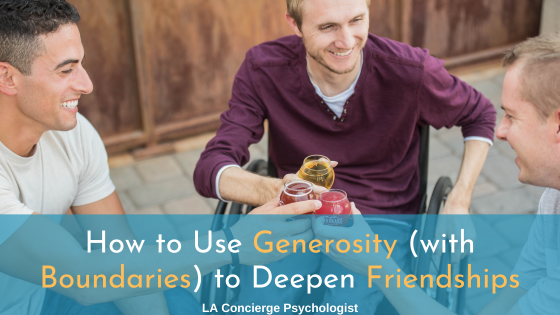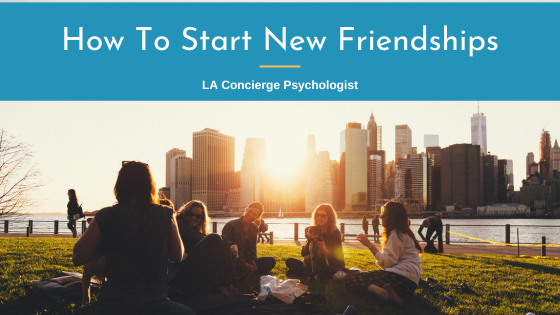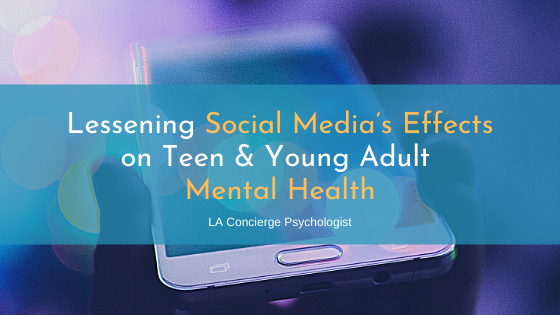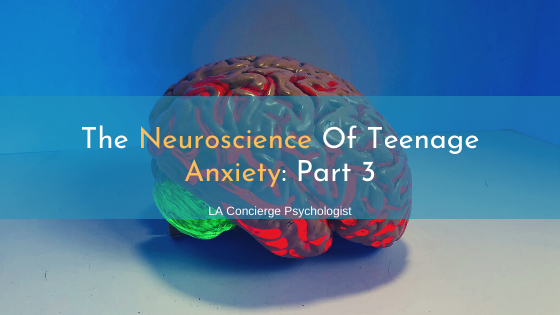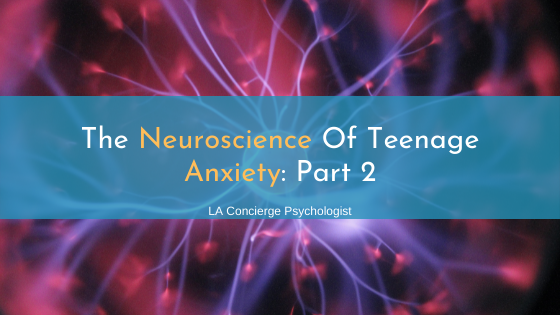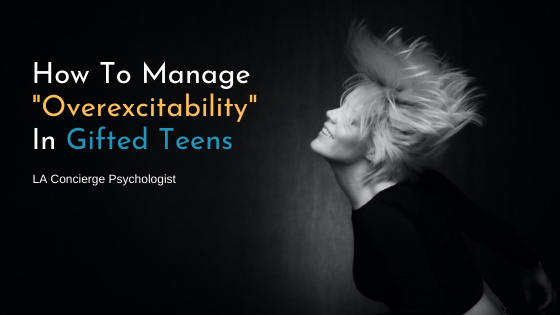Is Your Child Having Emotional Or Behavioral Problems?
Are you worried about your teen or tween’s state of mind? They may be showing signs of anxiety, including irritability, restlessness, or avoidance. They may also be unsure of how to develop friendships, pursue fulfilling endeavors, and complete everyday tasks. Conversely, if your adolescent has been putting a lot of pressure on themselves to perform well in school or other areas, their insistence on perfection may turn everyday activities into a source of stress.
Is your child showing signs of depression? They may be neglecting their hygiene, schoolwork, or friendships, preferring instead to shut themselves in their rooms for hours on end. Difficulties in making new friends and maintaining relationships may be bringing them down. Low self-esteem may also be a problem, as evidenced by their self-deprecating comments.
Has your son or daughter been acting out or shirking  responsibilities? Despite their intelligence, they may struggle to turn in assignments on time. They may also be reluctant to help around the house, but anytime you mention it, it causes household tension to rise. Worried about your child but afraid you’ll say something to set them off, perhaps you are at a loss for words. Even if you know what is causing their behaviors, you may be unsure how to help.
responsibilities? Despite their intelligence, they may struggle to turn in assignments on time. They may also be reluctant to help around the house, but anytime you mention it, it causes household tension to rise. Worried about your child but afraid you’ll say something to set them off, perhaps you are at a loss for words. Even if you know what is causing their behaviors, you may be unsure how to help.
The Teenage And Preteen Years Are Always Tumultuous
Adolescence is a time of dramatic change, especially when it comes to the parent-child relationship. During early childhood, kids rely on their parents for protection and wisdom. Parental authority goes mostly unquestioned. However, as children mature, they develop new ideas about themselves and the world—often to the surprise and dismay of their parents.
Changing social interactions are part of this transformation. Tweens become more self-conscious and start comparing themselves to their peers. Teens begin to form their own friendships instead of relying on those facilitated by their parents. They may also start to seek out romantic connections, despite their limited experience. Muddling their way through these changes is difficult for teens/tweens as well as their parents.
Adolescents feel called to start making their own decisions and exploring their own paths in life. However, the parts of their brains that facilitate focus, self-control, and restraint are not yet fully formed. This difficulty in understanding potential consequences, combined with their desire to experience new and exciting things, can set them up for risky behaviors.
Amidst this change, parents face the challenge of protecting their children from life-changing mistakes while allowing them to develop naturally. Walking this line is never easy, especially since teens and preteens tend to pull away from—and actively rebel against—their parents during the individuation process. Fortunately, parents don’t have to face this daunting challenge alone.
Set Your Child Up For Healthy Independence With Teenage/Tween Counseling

As your child matures, they may be less inclined to follow your advice. That’s why it is so important to have them work with someone who can provide additional guidance without making them feel judged, dismissed, or oppressed.
At LA Concierge Psychologist, we will treat your adolescent or tween child with the respect owed to every person regardless of their age. We’ll get to know them and encourage them to identify life goals that align with their preferences and values. We strongly believe that teens’ thoughts, feelings, and perspectives matter, and that they can gain important insight when they receive this kind of support. Older children are capable of making the right decisions when given a chance to evaluate their choices thoughtfully, and adolescent counseling will allow them to do that.
Therapy for tweens and teens always starts with rapport-building, so our first step in helping your child will be to get to know them. We will explore their background and how it may be affecting their worldview. Some beliefs, such as the notion that “other people can never be trusted,” are typically formed early but have life-long impacts. To help them dismantle any mental schemas that are holding them back, we’ll ask thought-provoking questions and reveal a healthier perspective. Our approach is characterized by empathy, validation, and understanding that helps adolescents feel comfortable while building the self-esteem and psychological skills they need to thrive.
Many of the teens we work with are under high stress, so we teach emotional regulation tools such as deep breathing, progressive muscle relaxation, and mindfulness exercises. When your child can better regulate their emotions, they’ll find it easier to avoid catastrophizing, black-and-white thinking, generalizing, and other problematic thinking patterns that make it harder to problem-solve.
Teen depression is another common obstacle we often address. Negative thought patterns always have a root cause, and our skilled child therapist can help uncover it. If your child views past failures as a sign of their unworthiness, we can teach them to practice self-compassion and view mistakes as a normal part of life. At the same time, we’ll encourage them to face difficult emotions head-on instead of running from them. Their growing awareness of their emotional state will help them develop a grounded identity and empower them to choose how they react to challenges.

We can also increase your teen’s awareness of which activities make them feel better and which only make things worse. Playing video games or staring at their phone all night might help them feel better for a while, but how will it feel arriving at school with an incomplete assignment? By allowing them to come to these conclusions themselves, we can guide your child to success without telling them what to do.
We work with neurotypical children and those with attention deficit hyperactivity disorder (ADHD) and autism spectrum disorder (ASD). Teens and tweens with developmental disabilities often struggle with executive functioning and low self-esteem, but we can help your child gain confidence through our neurodiversity-affirmative approach. Practical skills we will teach, such as breaking big tasks into smaller pieces, using timers, and getting ready the night before, can help them function more effectively.
Children who learn emotional regulation and life management skills early on will enjoy more stability and happiness for the rest of their lives. Teenage counseling can teach your child these skills and level out the rocky transition from adolescence to adulthood.
As you consider adolescent counseling, you may have some hesitations. . .
Isn’t this just a phase? Maybe they will grow out of it.
Considering the time and money it takes to get quality help, you may wonder whether teenage counseling will be worth the effort. However, if you’re worried that your teen or tween has gone astray, this is the ideal time to get them back on track. Lessons learned during adolescent therapy will set them up for success later in life, allowing them to manage their emotions, preserve relationships, and function more effectively for years to come.
Coming to a child therapist feels like admitting defeat.
Sending your child to teenage counseling doesn’t mean you have failed as a parent! It just means you are using all available resources to give your child every chance of leading a healthy adult life. If your teen or preteen has been pushing away from you, you are probably feeling hurt and defeated. Believe it or not, their desire to individuate is a sign that their development is progressing naturally. Your willingness to provide extra assistance during this dramatic transformation is a sign of great parenting.
 Do you offer family therapy for parents with teens or tweens?
Do you offer family therapy for parents with teens or tweens?
Adolescent children’s need to find their own identity often causes them to draw away from their parents and other family members, creating hurt and resentment. Communication issues make this problem more pronounced. If you’d like to restore peace and warmth to your household, we are happy to work with you in whatever way will serve you best. We offer family sessions as well as individual parental counseling and skills training, depending on your needs. We are passionate about being a source of validation and understanding for teens while simultaneously helping parents better understand and approach their behaviors.
Meet Drs. Barajas and Goldman, Our Resident Child & Adolescent Psychologists
Dr. Priscilla Barajas, Dr. Jenifer Goldman, and Dr. Elizabeth Smith Han offer online therapy sessions for tweens and teens living with anxiety, depression, trauma, autism, and/or ADHD. Visit our contact page to send them a message or book a free 20-minute phone consultation using the buttons below.




